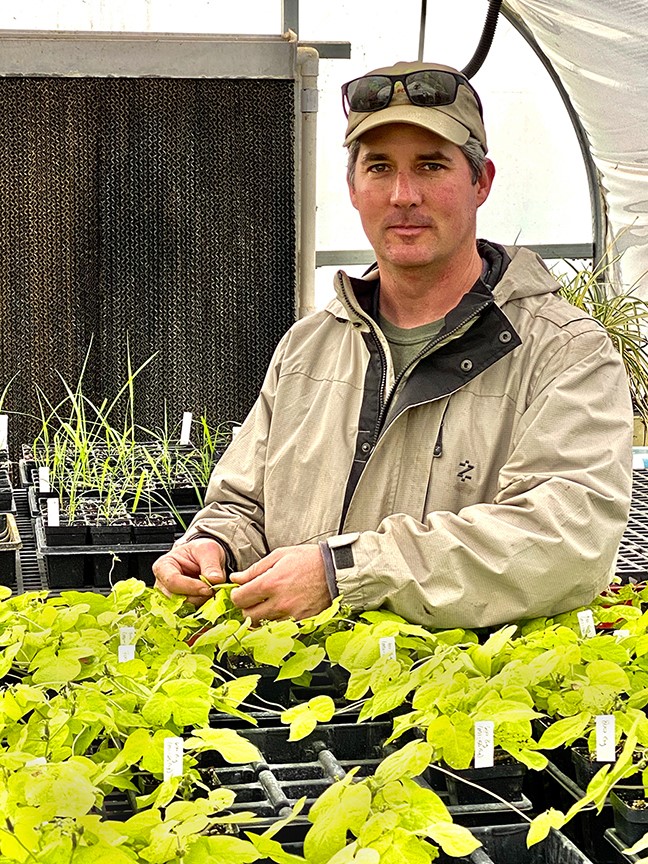 |
Electricity reliably delivered by Walton EMC is crucial to research being conducted at the University of Georgia’s Durham Horticulture Farm in Watkinsville, says superintendent Ryan McNeill. |
By agriculture standards, it’s just a small farm. But big things are constantly happening at the University of Georgia’s Durham Horticulture Farm in Watkinsville.
Weeks before most Georgians start thinking about what to plant in their gardens, yards and orchards, work is already at full throttle at the research facility popularly referred to as the Hort Farm. The 90-acre farm is home to research projects that may shape the future of what we eat and drink, the plants we put in our Georgia gardens and even the origin of our Halloween jack-o-lanterns.
“Better” is the word research station superintendent Ryan McNeill uses to describe the objective behind a variety of student and faculty research projects aimed at advancing fruits, vegetables and ornamental plants grown in Georgia. Some projects focus on improving the productivity and profitability of Georgia commercial agriculture. Others concentrate on the development of better plants for small home gardens.
Most of those projects will get an early start in one of the farm’s 13 greenhouses. The houses, which average about 2,000 square feet, use artificial lighting, fans, heaters and well irrigation powered by Walton EMC. These controlled environments allow researchers to get a head start on the outdoor growing season.
“Most of the plants being studied are started as seeds in one of the houses,” said McNeill, explaining why reliable electricity is crucial to the experiments. “We’ll grow them to a good size before transplanting them outside in the middle of May.”
The farm is a beehive of activity in late spring, said McNeill, who has worked there for 14 years. This year will be no different, as some new and exciting projects get underway.
A new blueberry plot is among the projects planned for this spring.
“We’re always looking to develop better varieties,” he said, referring to the state’s ranking among the nation’s top producers of blueberries.
In another area, researchers are working to improve the disease resistance of watermelons. Georgia ranks third in the U.S. in watermelon acreage.
About six acres of the farm are dedicated to organic vegetable production. This summer, researchers are concentrating on bell pepper and tomato production.
Fans of Georgia wines might be excited to know that the farm has several trials to evaluate new grape varieties that can thrive in the hot, humid climate common to local vineyards.
“We’re looking at some European wine grapes that can perform well here in the South,” said McNeill.
Prefer a locally sourced pumpkin for your Halloween jack-o-lantern? The Hort Farm is working on that, too.
“Traditionally, pumpkins don’t grow well in this part of the country,” McNeill explained. “We’re testing for varieties that can do better here.”
One of the varieties showing promise has been given a name that will leave no question as to its state of origin. It’s called Orange Bulldog.
Ornamentals, particularly colorful hibiscus, are also among what’s growing at the farm. “We’re breeding for better colors, more flowers and pest resistance,” McNeill said.
Home gardeners interested in getting a look at the hibiscus trials will get a chance later this summer when the farm hosts its bi-annual open house. A field day for organic farmers is also planned. To learn the dates for these activities, McNeill suggests following UGA Horticulture on Facebook.